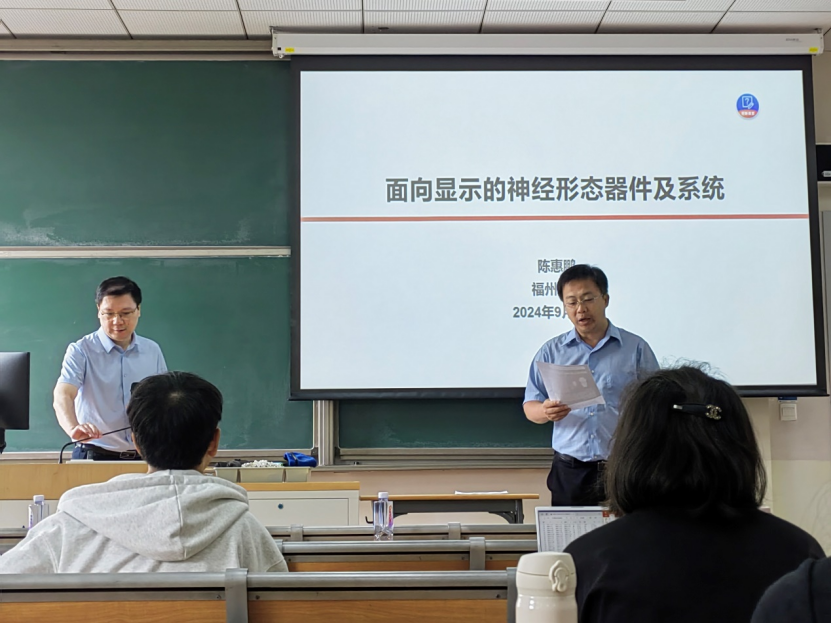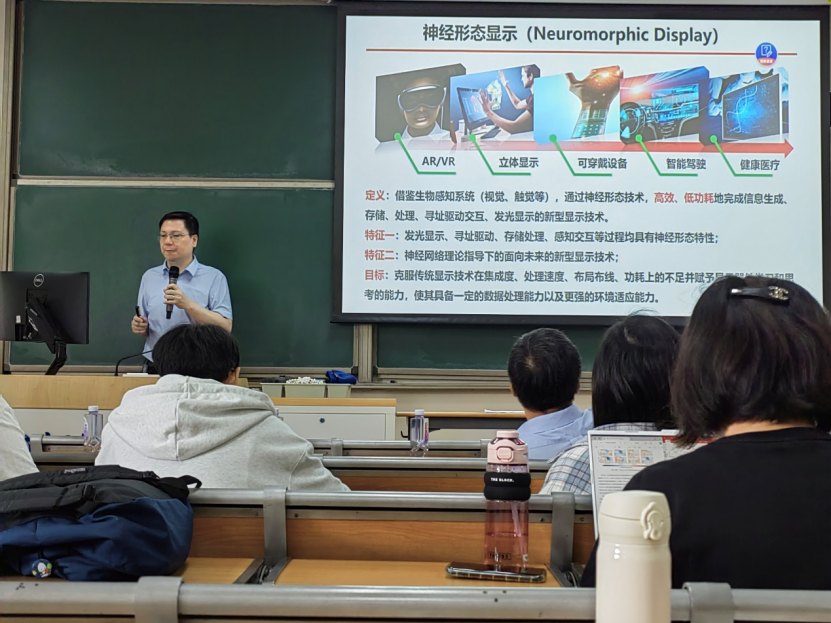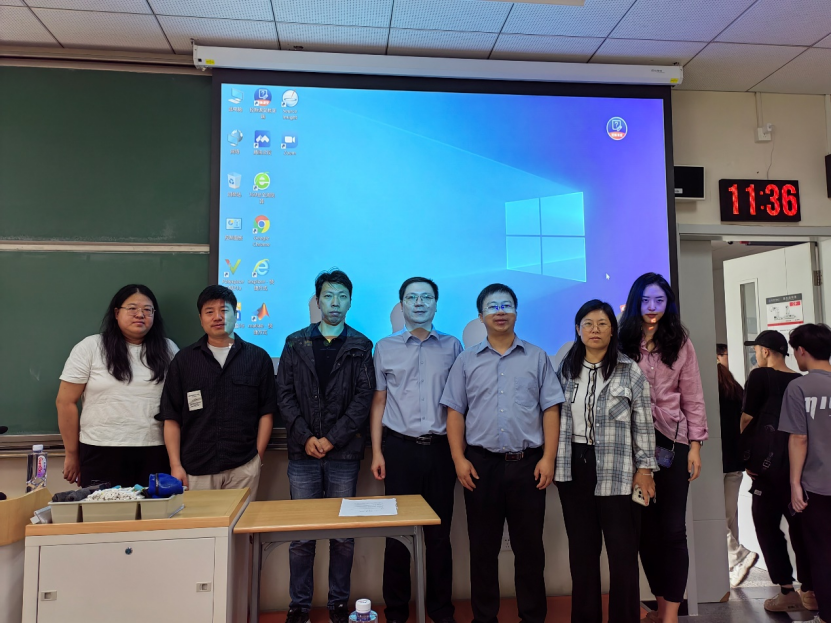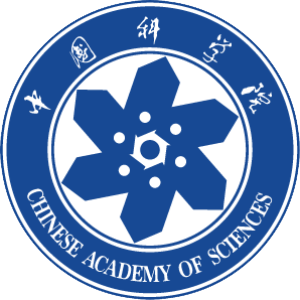On the morning of September 13, 2024, Professor Chen Huipeng from Fuzhou University was invited by Professor Huang Hui to give a lecture on the theme of "Display-oriented Neuromorphic Devices and Systems" at the University of Chinese Academy of Sciences, which was held in 214, Teaching Building 1.

This lecture first introduces the technical support of high-quality display images, high-frequency display drivers, and massive parallel computing in the future that will inevitably be inseparable from the needs of more realistic display experience, more frequent human-computer interaction, and larger data processing. Traditional display technology is facing the great challenges of high power consumption and low efficiency, and neuromorphic technology with the characteristics of integrated storage and computing can well solve these difficulties, so neuromorphic technology is an effective strategy to realize future intelligent display.

Then, the lecture introduced the specific work from four aspects: sensory memory and computing processing at the neuromorphic chip end, structural design of neuromorphic devices, neuromorphic light-emitting devices and neuromorphic display circuits, and pointed out that it is necessary to use the "top-down" idea to design neuromorphic devices and achieve simulation at the molecular level.
Finally, the lecture gave an outlook on neuromorphic display technology, and believed that the first stage of neuromorphic display development is to break the physical boundaries of storage, computing and display modules. The second stage is to integrate the functions of storage, calculation, and display on a single pixel.
At the end of the lecture, Mr. Chen discussed the problems of neuromorphic display at the device level, material level and mechanism level, and the lecture aroused heated discussions between teachers and students.

Chen Huipeng graduated from the University of Science and Technology of China in 2004 with a double bachelor's degree in applied physics and electronic information engineering. He graduated from Tufts University in United States in 2009 with a Ph.D. in physics. He is currently a professor and doctoral supervisor of Fuzhou University. He is a distinguished professor of Fujian Minjiang Scholars and a winner of the Fujian Outstanding Youth Fund. He has been engaged in the research of semiconductor optoelectronic materials and devices preparation and application for a long time. In the past 5 years, he has published more than 100 SCI papers in related high-level journals at home and abroad as the corresponding author in Nature Communications (7), Advanced Materials (5), IEEE EDL (15) and other related high-level journals at home and abroad. He has presided over the National Natural Science Foundation of China regional joint key projects, national key research and development projects, and general projects of the National Natural Science Foundation of China.
